At the 2025 Indonesia Mining Conference & Critical Metals Conference - Nickel, Cobalt, and NEV Arena, Prof. Evvy Kartini, the founder of the National Battery Research Institute of Indonesia, shared insights on the topic of "Advanced Material Processing in Battery Technology: From Nickel to Batteries."
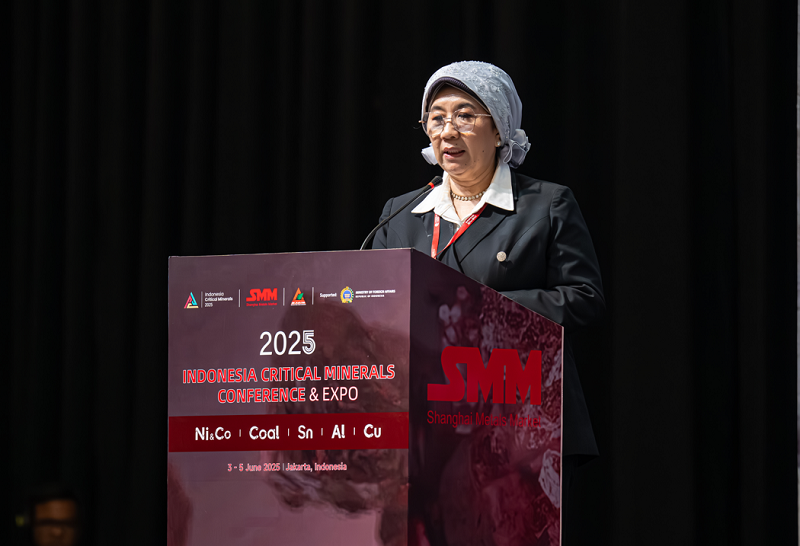
Indonesia is committed to reducing greenhouse gas emissions and, in Presidential Regulation No. 55 of 2019, designated the development of the domestic EV industry as a national priority, aiming to "enhance energy efficiency in the transportation sector."
The country plans to establish a comprehensive and integrated domestic EV supply chain, encompassing the mining and processing of battery metals, the production of cathode active materials (CAM), the manufacturing of battery cells, packs, and EVs, and ultimately, the recycling of batteries.
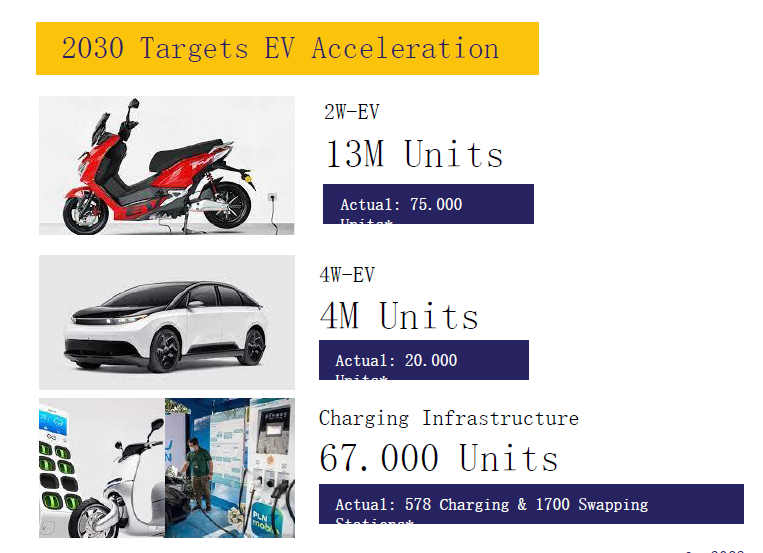
Batteries enable the decarbonization of road transportation.
Despite the continuous growth in global automobile ownership, the increase is expected to be decoupled from CO2 emissions due to higher electrification rates.
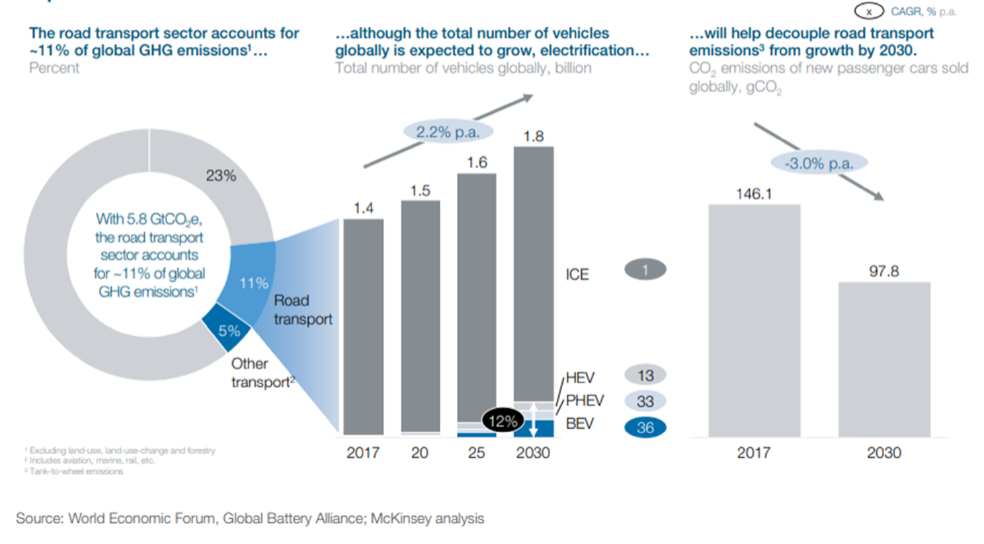
Battery Sustainability
By 2030, global demand for lithium-ion batteries is projected to exceed 3,100 Gwh.
Batteries are a key technology driving the energy transition and expanding global energy access.
The Atacama Salt Flat, known as the "dry land of the Andes" in Chile, is one of the world's largest lithium ore reserves.
Lithium - The White Gold Mine
If discoveries in Jammu and Kashmir are confirmed, India could account for 5.7% of global reserves.
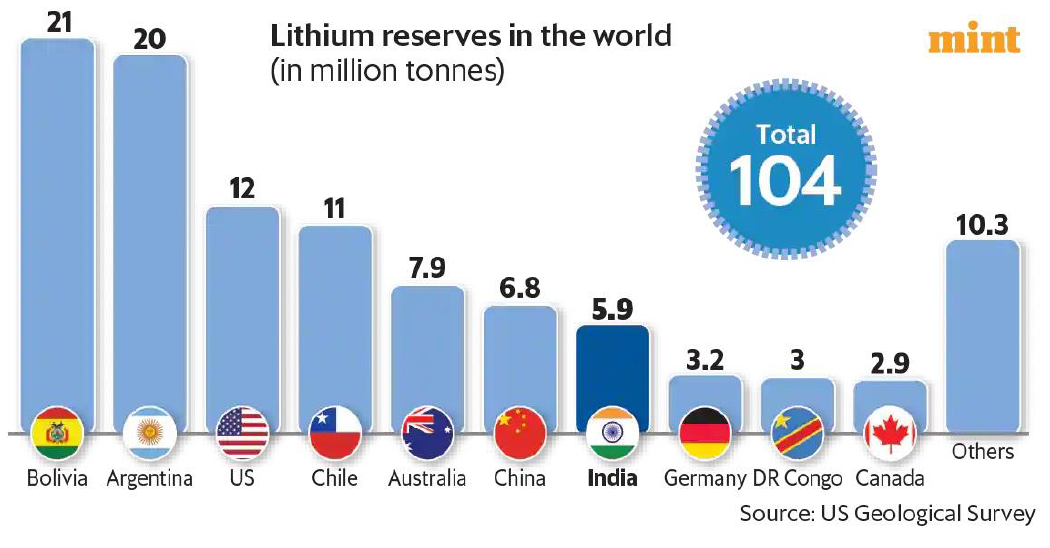
Indonesia's Strategic Planning
Local Mineral Sources
Accessibility of Indonesia's Critical Minerals in the Energy Transition
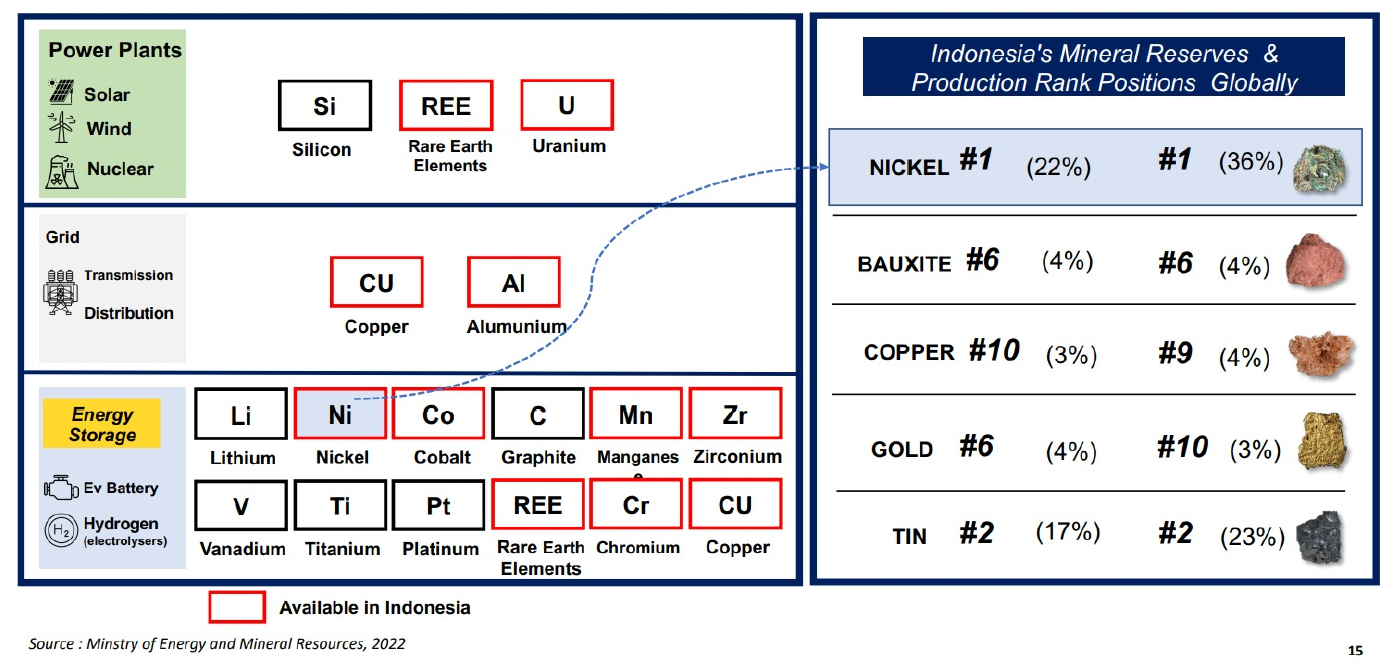
The Future of Indonesia's Nickel Strategy
Prospects for Indonesia's Nickel-Based Battery Technology and Automotive Industry
Indonesia's automotive business prospects are promising:
Indonesia is the largest automotive sales and production market in the ASEAN region.
It is expected that by 2025, Indonesia's automobile production will climb to 2 million units.
The automotive industry will continue to be a vital pillar of Indonesia's economic growth.
The Critical Role of Batteries in EVs: Batteries are considered the most valuable component of EVs, accounting for 35% of production costs.
Indonesia's Nickel Resource Advantage: Indonesia possesses the world's largest nickel reserves and controls nearly 30% of global nickel production.
Combining these factors, Indonesia has unique advantages in developing the EV industry, which can not only drive the domestic automotive manufacturing sector but also has the potential to play a significant role in the global EV battery market.
Challenges and Opportunities in Increasing the Added Value of Nickel
Utilization of Low-Grade Nickel as Raw Material for Battery Packs:Low-grade nickel, traditionally considered waste material, has now found significant applications in battery manufacturing. This not only enhances the utilization value of the material but also improves the sustainability of the nickel industry chain, which relies on natural resources.
The Role of Mining in the Clean Energy Transition:As the world transitions to clean energy, mining plays an indispensable role in supplying critical minerals. In particular, the effective extraction and supply of nickel are crucial for achieving large-scale energy transition goals.
Challenges and Innovations:
Identification and Discovery:There is a need to develop more advanced technologies and methods to rapidly identify and discover new nickel ore resources.
Metal Extraction and Recycling:Improve metal extraction and recycling technologies to enhance efficiency and reduce environmental impact.
Alloying:In terms of innovative alloying technologies, seek methods to effectively combine nickel with other metals to enhance material performance and application scope.
Upstream: From Minerals to Cathode Materials
Comparison Between Lithium-Ion Batteries: LFP Batteries and NMC Batteries
LFP batteries are highly recognized for their long life and high safety. Additionally, they are cost-effective due to their iron-based composition. However, due to their lower energy density, they require more battery space.
In contrast, NMC batteries are renowned for their high energy density and high power but perform slightly worse in terms of safety and lifespan. These batteries are more expensive due to the high cost of nickel and cobalt.
Each type has its own characteristics and suitable application scenarios. LFP batteries are suitable for stationary applications without space constraints, while NMC batteries, due to their energy density advantage, are more suitable for automotive applications with limited space.
Global Nickel Ore Production Distribution by Country in 2019
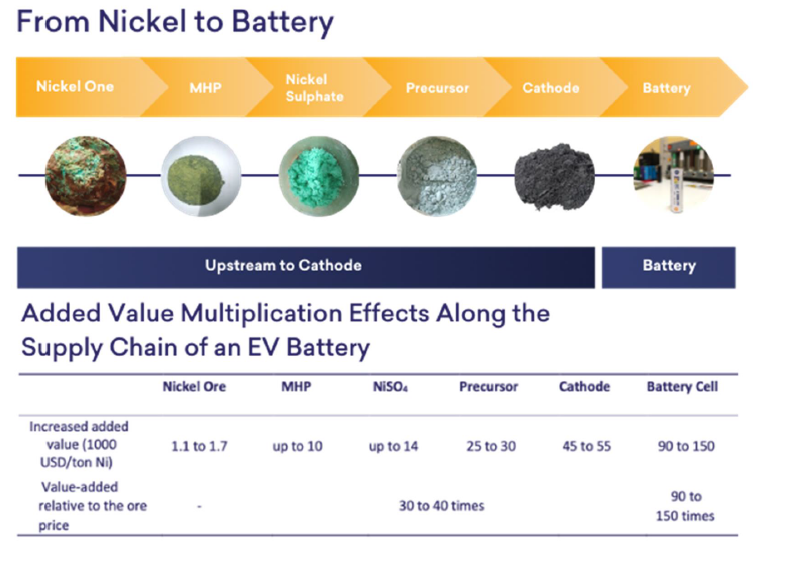
The total global nickel ore production was 2.7 million mt.
Increasing Nickel Content in Lithium-Ion Batteries
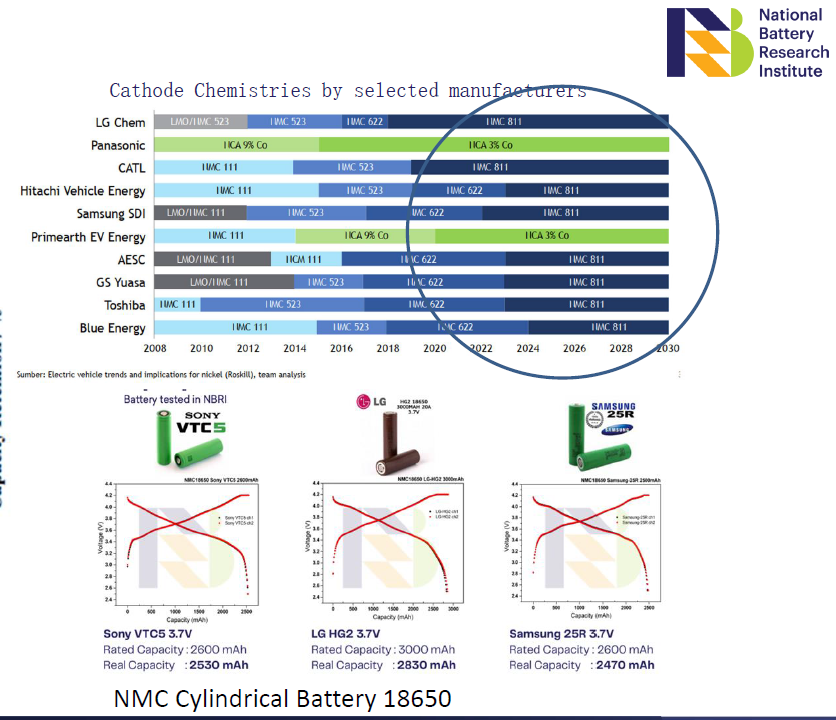
Furthermore, Prof. Evvy Kartini also introduced the achievements of the Indonesian National Battery Research Institute in midstream battery manufacturing and battery recycling.
Downstream: Battery Applications in Indonesia
According to media data, as of November 24, 2023, the total number of electric vehicles in Indonesia was 107,841 units.
Current Status of Two-Wheeler EV Battery Packs
Currently, there are 13 different brands of battery packs on the market, but they have not yet been standardized. This is specifically manifested in significant differences in volume, weight, specifications, connecting components, battery management systems, and protocols.
Lithium Battery Standards and Safety
Thermal Runaway Process of Lithium-Ion Batteries
Heating Initiation: The battery's temperature gradually rises.
Separator Decomposition: The battery's separator begins to decompose.
Electrolyte Decomposition: The electrolyte decomposes, producing flammable gases.
Separator Melting: The separator melts, potentially leading to a short circuit.
Cathode Decomposition: The cathode material decomposes, generating oxygen.

Battery Testing and Standardization
Our facilities focus on battery and standardized testing to ensure that product performance and safety meet international and national standards.
Battery Testing Facilities:
Battery Cell and Pack Performance Testing Facilities: We provide advanced battery cell and pack performance testing to ensure product quality and reliability.
Battery Pack Safety Testing Facilities: In collaboration with PT. Carsurin, Tbk, we offer rigorous battery pack safety testing to ensure compliance with international and national safety standards.
Consulting Services
As experts in the field of lithium-ion batteries, we provide professional consulting services to consumers regarding their energy storage needs in renewable energy and electric vehicles.
Inspection Services
We offer inspection services for energy storage applications that comply with international standards to ensure product quality and safety.
》Click to view the special report on the 2025 Indonesia Mining Conference & Critical Metals Conference
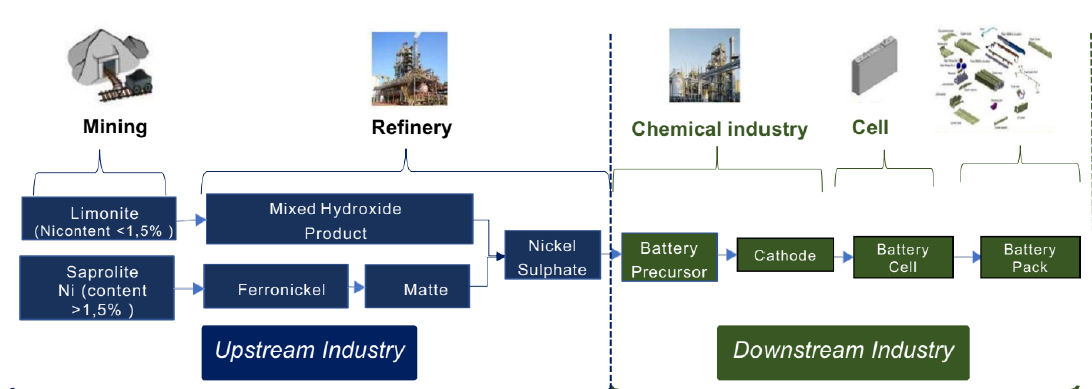
![This Week, Platinum and Palladium Experienced Significant Pullbacks, End-Use Demand Recovered, and Spot Market Trading Was Normal [SMM Platinum and Palladium Weekly Review]](https://imgqn.smm.cn/usercenter/obeMy20251217171735.jpg)
![Silver Prices Continue to Pull Back, Suppliers Remain Reluctant to Sell, Spot Market Premiums Hard to Decline [SMM Daily Review]](https://imgqn.smm.cn/usercenter/LVqfJ20251217171736.jpg)

